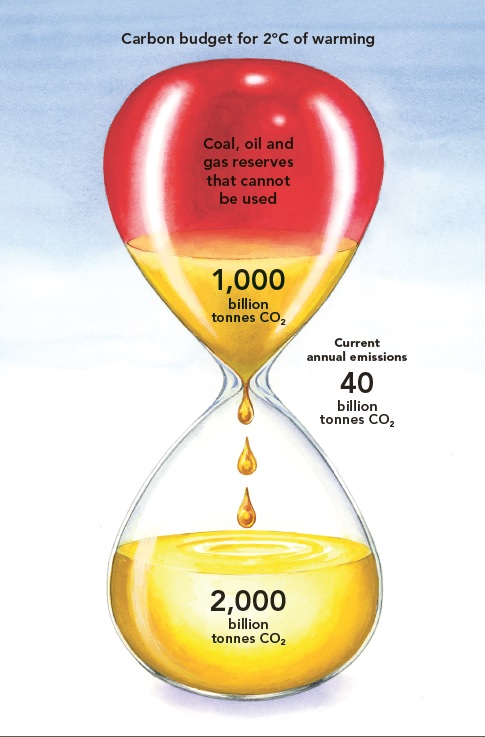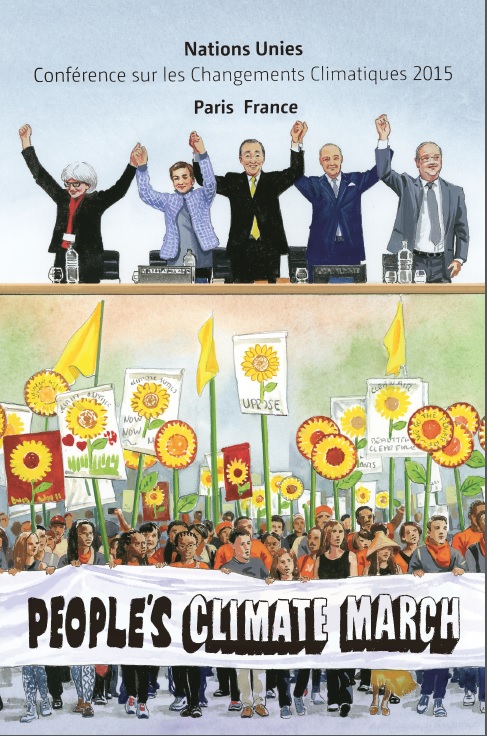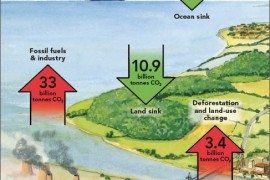
Video: Dr Emily Shuckburgh on peer-reviewing the Ladybird book on climate change
Leo Hickman
01.26.17Leo Hickman
26.01.2017 | 12:34pmLadybird, the children’s publisher, has launched a new series of “expert books” today. One of the topics is climate change, with the others being quantum mechanics and evolution.
The56-page hardbackbook on climate change is co-authored by Prince Charles,Tony Juniperand Dr Emily Shuckburgh. It is illustrated in the style of the iconic Ladybird series that were popular with children in the 1960s and 1970s. (See the sample of pages in the gallery below.)
Writing in theMail on Sundaylast weekend, Prince Charles explained what led him to want to publish such a book:
“The continuing confusion about what the science of climate change actually says, and the fact that positive solutions to it are now at hand, led me to help write a little ‘plain English’ book on the subject, covering the scientific facts, why we must urgently act upon those and why doing so would actually be a very good thing…I hope [it] will be of interest to some of the many people who remain uncertain or, indeed, unaware of the inescapable facts.”
At the back of the book, it lists the following scientists as peer-reviewers:Prof Neil Adger;Prof Nigel Arnell,Dr Joanna House;Prof Jason Lowe;Prof Georgina Mace;Prof John Shepherd;Prof Eric Wolff; andDavid Warrilow前的科学主管部门亚慱彩票APPEnergy and Climate Change, is listed as the review editor.
Carbon Brief spoke withDr Emily Shuckburgh, deputy head of the polar oceans team at the British Antarctic Survey, and asked her about how the book was peer-reviewed:
“We really wanted to make sure all the material we had in the book could be said to be robust and evidence-based. So we thought having the book go through a peer-review process, despite no Ladybird book ever having been through a peer-review process before, would be really help. So we approached the Royal Meteorological Society to undertake that review…In writing the first draft, we, as authors, tried to make sure all statements in the book refer back to the peer-review literature. When we were comfortable with the first draft, we then sent it to the reviewers. The review editor then came back to us with those comments and we made revisions accordingly. And then the final version went back to the reviewers for their approval.”
Shuckburgh on what elements of climate science were hardest to synthesise down for the book:
“I don’t think I’d single out any particular thing. Climate science is an area that is complex and multi-faceted and a lot of the statements that we can make as scientists are quite nuanced. I think the biggest challenge was trying to fit all of that into 5,000 words. It was boiling down all that nuance in a way that still maintained the robustness of the statement…
In a way there’s almost too much in the book. It’s a bit like [digesting] all three working groups of the IPCC report into a Ladybird book. I don’t think there’s an awful lot more that we could have possibly squeezed in. We didn’t just try to talk about the science and the climate challenge, if you like, we also tried to talk towards the end of the book about the opportunities and talked a little bit about the technical innovations that are starting to bubble up. I think if we’d had more space, an entire other Ladybird book could be devoted to talking about those opportunities and the new innovative technologies in more detail.”
On whether the book will be updated over time:
“There’s awebsitelisted at the end of the book which has all the references that we’ve provided for each of the different pages through to the peer-reviewed literature. Our intention is to keep that permanently updated. Without committing to anything, I would imagine that as new editions of the book are produced we might very well want to make sure they are kept up-to-date.”
Video by Rosamund Pearce.











